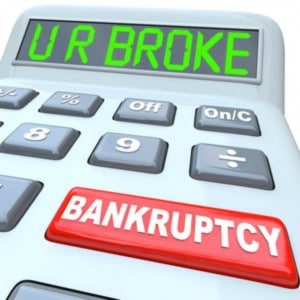 Canadian bankruptcy expert introduction
Canadian bankruptcy expert introduction
There are several misconceptions when it comes to the Canadian bankruptcy expert known as a licensed insolvency trustee and that the role of the trustee is only for the bankruptcy process. It is true that a licensed insolvency trustee is the Canadian bankruptcy expert, but it is not the case that a licensed insolvency trustee only can administer Canadian bankruptcies.
- Misconception # 1 is that trustees only deal with bankruptcy. Although you may know that a trustee is a Canadian bankruptcy expert, they’re also highly trained and educated debt consultants who, depending upon your particular circumstances, can offer you several alternatives which include credit counselling, debt consolidation and consumer proposals.
- Misconception # 2 is that because it is a legal process, you need a lawyer. Although you may have heard many radio commercials telling you that you need a lawyer if you’re going to declare bankruptcy, and if you are dealing with income tax debt to keep using a certain lawyer and not a licensed insolvency trustee, this is simply not the case. Even though it is is a legal process, to file bankruptcy in Canada you need the services of a licensed insolvency trustee. In fact, bankruptcies and consumer proposals can only be administered in Canada through a licensed insolvency trustee.
What is the role of a trustee?
The Office of the Superintendent of Bankruptcy (OSB) licenses trustees to administer bankruptcy proceedings. When you file for bankruptcy, the trustee becomes the administrator of your property and assets.
Why use a trustee instead of a debt settlement company?
Debt settlement companies can’t administer a bankruptcy or a consumer proposal – ONLY a licensed insolvency trustee can. In addition a trustee:
- is federally regulated
- has undergone a background check by the RCMP before being granted a licence
- is subject to a stringent code of ethics
- maintains his/her competency by completing ongoing mandatory professional development each year
- The Federal Government and the Court regulate trustees’ fees and for consumer matters, they are usually less than the fees of the debt settlement companies who make unsubstantiated claims
What should you do if you or your company have too much debt?
If you’re dealing with serious financial issues, contact a trustee, who is the Canadian bankruptcy expert. For the reasons already given, you should do this whether or not you’re contemplating filing. The reason is very simple: the licensed insolvency trustee will assess your situation, offer you all of your available options and will do this for you for free! You can’t find a better deal anywhere.
We’re experts in dealing with debt. Contact Ira Smith Trustee & Receiver Inc. today for a free consultation and you will be well on your way to regaining your former quality of life Starting Over, Starting Now. Read our blog next week when we’ll be discussing how to choose a licensed insolvency trustee.




